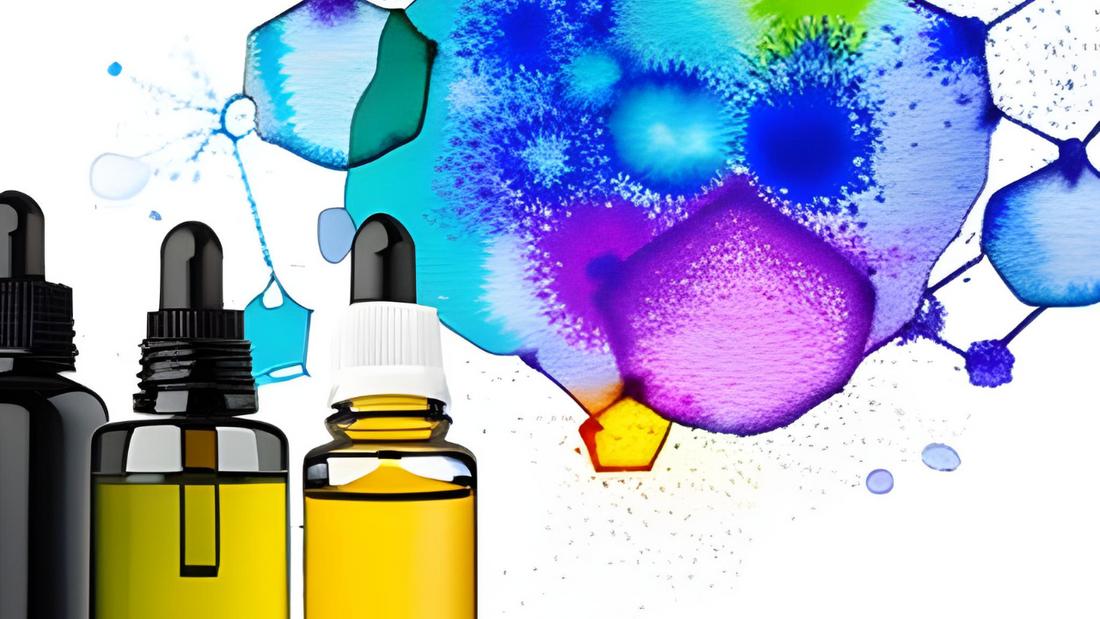The therapeutic use of essential oils, has been used for centuries to enhance emotional health. Numerous studies have shown that the olfactory system, responsible for our sense of smell, is closely linked to the limbic system, which controls emotions and memories This connection allows certain scents to have a profound impact on our emotional states.
In an aromatherapy tool kit, there are several essential oils that have gained a significant reputation through both anecdotal evidence and scientific studies. Integrating these oils into an aromatherapy session can enhance the overall experience and therapeutic benefits. The following group of oils have shown promising effects and can be considered essential in any aromatherapy practice.

- Neroli essential oil, derived from bitter orange blossoms, is known for its calming and uplifting properties.
- Rose essential oil is associated with feelings of love and comfort. It was revealed that the aroma of rose oil elicited positive emotional responses, including reducing stress and promoting relaxation
- Lavender essential oil is renowned for its ability to induce relaxation and alleviate stress. Studies have reported that study that lavender used in aromatherapy significantly reduced stress levels and improved mood
- Lemon essential oil has uplifting and invigorating properties. lemon oil scent positively influenced mood and helped reduce symptoms of depression
- Patchouli essential oil is often associated with grounding and centering emotions.
In conclusion, the field of scent psychology offers insight into the significant impact of aromas on our emotions and overall well-being. Essential oils like neroli, rose, lavender, lemon, and patchouli have shown therapeutic potential in promoting relaxation, reducing stress, and enhancing emotional balance.
One effective method for introducing these oils is through diffusing them in the air for 10 to 20 minutes or using inhalation sticks or jars with 1 to 8 drops in the container. Further research is needed to fully understand the precise effects of specific oils on stress reduction and relaxation.
As a certified aromatherapists, we have the opportunity to harness the power of these scents in your practice and positively impact the lives of your clients.
References and further reading.
Herz, R. S. (2009). Aromatherapy facts and fictions: A scientific analysis of olfactory effects on mood, physiology, and behavior. International Journal of Neuroscience, 119(2), 263-290.
Choi SY, Kang P, Lee HS, Seol GH. Effects of Inhalation of Essential Oil of Citrus aurantium L. var. amara on Menopausal Symptoms, Stress, and Estrogen in Postmenopausal Women: A Randomized Controlled Trial. Evid Based Complement Alternat Med. 2014;2014:796518. doi: 10.1155/2014/796518. Epub 2014 Jun 12. PMID: 25024731; PMCID: PMC4082953.,
Fazlollahpour-Rokni F, Shorofi SA, Mousavinasab N, Ghafari R, Esmaeili R. The effect of inhalation aromatherapy with rose essential oil on the anxiety of patients undergoing coronary artery bypass graft surgery. Complement Ther Clin Pract. 2019 Feb;34:201-207. doi: 10.1016/j.ctcp.2018.11.014. Epub 2018 Dec 1. PMID: 30712728.J.,
Dunn C, Sleep J, Collett D. Sensing an improvement: An experimental study to evaluate the use of aromatherapy massage and periods of rest in an intensive care unit. J Adv Nursing. 1995;21:34-40.
Komiya M, Takeuchi T, Harada E. Lemon oil vapor causes an anti-stress effect via modulating the 5-HT and DA activities in mice. Behav Brain Res. 2006 Sep 25;172(2):240-9. doi: 10.1016/j.bbr.2006.05.006. Epub 2006 Jun 15. PMID: 16780969.
Koulivand, P. H., Khaleghi Ghadiri, M., & Gorji, A. (2013). Lavender and the nervous system. Evidence-Based Complementary and Alternative Medicine, 2013, 681304.
